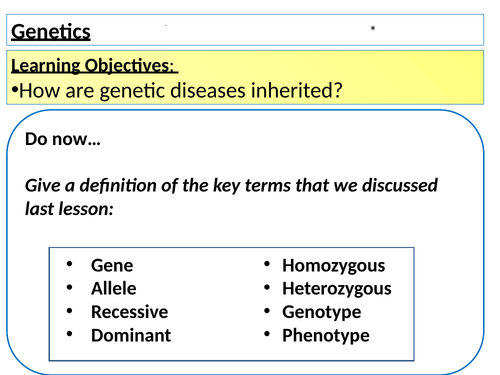


















A sequence of lessons for AQA B6 Inheritance, variation and evolution.
In this section we will discover how the number of chromosomes are halved during meiosis and then combined with new genes from the sexual partner to produce unique offspring. Gene mutations occur continuously and on rare occasions can affect the functioning of the animal or plant. These mutations may be damaging and lead to a number of genetic disorders or death. Very rarely a new mutation can be beneficial and consequently, lead to increased fitness in the individual. Variation generated by mutations and sexual reproduction is the basis for natural selection; this is how species evolve. An understanding of these processes has allowed scientists to intervene through selective breeding to produce livestock with favoured characteristics. Once new varieties of plants or animals have been produced it is possible to clone individuals to produce larger numbers of identical individuals all carrying the favourable characteristic. Scientists have now discovered how to take genes from one species and introduce them in to the genome of another by a process called genetic engineering. In spite of the huge potential benefits that this technology can offer, genetic modification still remains highly controversial.
Something went wrong, please try again later.
This resource hasn't been reviewed yet
To ensure quality for our reviews, only customers who have purchased this resource can review it
Report this resourceto let us know if it violates our terms and conditions.
Our customer service team will review your report and will be in touch.